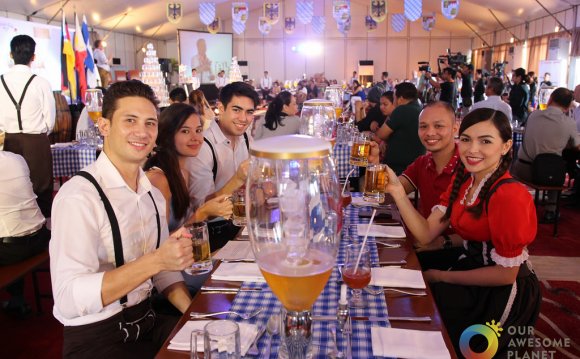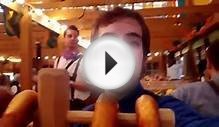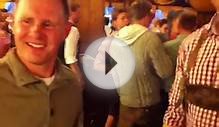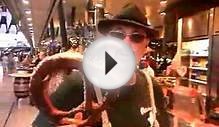
Every year in late September, millions of people will travel to Munich, like every year, to attend the world’s largest fair: the Oktoberfest, which boasts a long tradition. It first took place in 1810, when Crown Prince Ludwig (later King Ludwig I) married Princess Therese of Bavaria. To celebrate the royal wedding, a horse race was held in an open space which is now called the Theresienwiese, named after the bride Princess Therese.
It is truly a festival of superlatives with 6.9 million visitors in 2011 alone. In the same year, 7.5 million litres of beer and 522, 821 roast chickens were consumed. Over the years, Oktoberfest has developed many traditions and it is quite an experience. Let’s have a look at a few of the most important Oktoberfest words you need to know to find your way around.
Bayern (das)
German name for Bavaria, formally the Free State of Bavaria. It is the largest of the 16 German Bundesländer (states), with Munich as its capital.
The word hardly needs to be translated, but at Oktoberfest everything revolves around the Bavarians’ favourite drink – beer! There is a special beer brewed exclusively for Oktoberfest every year, fittingly called Oktoberfestbier. There are strict guidelines the breweries have to follow: the beer has to conform to the Reinheitsgebot (German Beer Purity Law – yes, there is such a thing!) and it must have been brewed within the city of Munich. At 6%, it has a higher alcohol content than normal beer. Arguably the most important phrase to memorize for Oktoberfest is ‘Ein Bier, bitte!’ (‘A beer, please!’).
Bierzelt (das)
A beer tent. There are 34 tents at Oktoberfest; 14 large ones and 20 small ones. The biggest one is the Hofbräuzelt which seats up to 10, 000 people.
Bierkrug (der)
A beer mug/stein, which is an essential thing to have at Oktoberfest. See also Maßkrug.
Brezel (die)
German for pretzel. In Bavaria also called Brezn. It is made from wheat flour, water, and yeast, and sprinkled with coarse salt.
A traditional dress for women, the dirndl is worn especially in Bavaria and very popular among female Oktoberfest visitors. It consists of a bodice, blouse, skirt, and apron, and the name originates from the south German diminutive term Dirne, meaning ‘girl’.
Hendl (das)
Bavarian for (roast) chicken. Usually eaten with a Brezn and a Maß of beer. The standard German term is (Brat-)Hähnchen.
Kellner (der)/Kellnerin (die)
German for waiter and waitress respectively. Waiters and waitresses working at Oktoberfest have to be particularly resilient. Not only do they have to deal with drunken customers, they also have to carry up to 10 Bierkrüge at the same time. You can make a lot of money working at Oktoberfest; some people even take time off their regular work to be able to earn money as waiters/waitresses.
rtve researchgate astro.wisc.edu engawa.kakaku.com search.auone.jp telstra.com.au sitereport.netcraft.com wikimapia.org nutritiondata.self.com kaskus.co.id digitalcollections.clemson.edu superherohype.com tools.folha.com.br talgov.com minecraft.curseforge.com curseforge.com foro.infojardin.com camfrog.com popcouncil.org drinksmixer.comRELATED VIDEO












